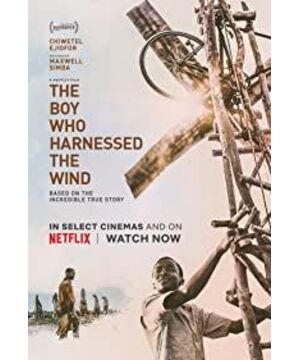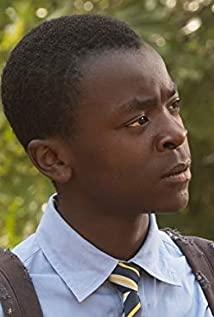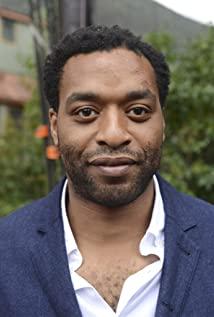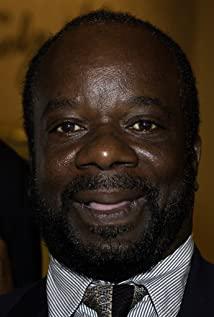In 2001, Malawi, Africa, the land was deep and the sky was bright, but disasters followed one after another. First, drought, then floods, and then drought. There were almost no crops. crisis. A 13-year-old boy named William, based on the knowledge he learned from books, built a wind turbine and led the whole village out of the famine.
Little boy William is the protagonist in the film "The Boy Who Harnessed the Wind," a Netflix film based on true events written and directed by Chiwetel Ejiofor, who married Keira Nye in "Love Actually" Terri's black man was nominated for an Academy Award for Best Actor for "12 Years a Slave". Chiwetel plays William's father, Zawell, in "The Boy Who Rides the Wind."
"The Boy Who Harnesses the Wind" contains the destinies of helplessness and loneliness in Africa for thousands of years, as well as the hope and aspirations brought by science and technology education.
harsh living environment
The film is divided into five parts: cultivation, growth, harvest, famine, and wind. It is not only the growth of crops, but also William's growth.
Marville, where William was born and raised, is one of the least developed regions in the world and has lived on farming for generations. It is already the 21st century, but the villagers still rely on manpower for farming and harvesting, and relying on the sky for food. Once they encounter floods and droughts, they will encounter famine. Other than waiting for the next year's harvest, they have no other power to resist.
The film begins with a series of natural disasters, and government officials not only ignore the food crisis caused by the natural disaster, but also fight against the outspoken chief, and the elderly chief is seriously injured.
The hungry villagers were running around to grab food, and William's family's food was also robbed. The little savings left were only enough for the family to eat one meal a day and not starve to death.
William stood on the hillside, watching the trees in the woods being cut down, falling down and dying one by one, watching the hungry villagers struggling in panic, watching his beloved dog starve to death, watching everything that happened on the earth Powerless.
change brought about by knowledge
In such a harsh living environment, studying and studying means change and hope for William.
However, the family is too poor. Although William's parents have studied, they have no way to make money. Sister Anna is admitted to the university and has no money to study. William also dropped out because he could not pay the tuition fee.
He loves learning so much. He tried his best to look up physics books in the library while looking up the dictionary. He was deeply attracted by one of them, "Energy Utilization", which is a book about how to utilize wind energy.
In the wilderness of Wimbay Village, there were winds everywhere, big and wild winds, and William watched these winds, thinking about how to turn them into electricity.
William found his friends in the village and started building windmills together. They went to the junkyard to pick up accessories and used all the resources at hand. At William's pleas, Tzewell agreed to use the family's only property bicycle, remove the wheels, cut the frame, and make a big windmill.
In fact, they didn't really believe that William could really make water. It's just that people in a desperate situation have to believe in something to support themselves through the darkness.
Finally, the big windmill was built, and the wind on the ground gathered, and a miracle happened, and the water flowed out. Everyone hugged and wept, busy growing vegetables, waiting for grains to grow and survive the famine.
Sometimes I wonder, learning the same knowledge, why was William able to create a windmill generator?
I thought about it, because when William encountered a problem, he would try to find the answer. He wants to study at night, but there is no electricity or oil lamp. He will go to the junkyard to find materials and find a way to generate electricity; he finds that when the teacher's bicycle turns, the lights installed in the front of the car will light up, and he will ask the teacher for advice on how the lights will light up. In principle, thinking about making one myself.
He can combine the tools of thinking with practical problems, so that the knowledge he has learned has room to display. He learns for the unknown, for solving problems, and is result-oriented, so he can change his destiny through the knowledge he has learned.
How to get out of the cycle of "the poor get poorer"
The author George Orwell said, "The essence of poverty is the annihilation of the future."
Because of poverty, they are deficient. Because of the scarcity of resources, the vision of the poor is obscured. They can only see the immediate crisis and benefits, but not the broader possibilities. The longer-term future is erased by scarcity. Even if they have money on hand, they will only use it to deal with the immediate problems, and will not consider learning skills to store value for the future.
This also explains the poverty of the village of Wimbay where William is located.
The villagers sold the trees that had been protecting them from the flood for a small profit in front of them, leading to flooding and serious crop damage.
William's cousin would rather gamble with money than let his children go to school, because reading is not like gambling and seeing the results immediately. Short-sightedness is not only a temporary failure, but also makes them poor for generations.
The same is true for William's father, Zavier. During the drought and famine, he struggled to turn the ground on the stiff and cracked ground every day, just thinking about surviving this famine. He thought William's idea was stupid and was unwilling to take the bike out for William to experiment.
This is no wonder Zawell, he was once as young as William, he was brave and bloody, and tried to make various changes, but one or two failures made him gradually accept the reality and identify with the lives of the people around him, so He couldn't accept William's one-and-done solution right away.
In the face of scarcity and deprivation, in the face of hunger and despair in front of us, it is difficult to look far ahead. Only William, who was born with a calf who is not afraid of tigers, has never experienced disappointment and blow, and has no heavy burden on his body. take actions.
Fortunately, William also has an enlightened and wise mother. No matter how hard or tired he is, he wants to let his children go to school and study. It is also his mother who made Tzewell change his mind and use the bicycle to build a windmill.
God is like the wind and touches everything. The whistling sound of the wind in Africa has been transformed into life-saving water.
hope and change
Based on the novel of the same name, The Boy Who Harnessed the Wind, William won a scholarship for using windmills to generate electricity. He completed his studies in Malawi, then went to South Africa to attend the African Leadership Institute, and then he earned a degree in environmental science at Dartmouth College in the United States. .
He uses the knowledge he has learned and the insights he has gained to help the villagers live a better life.
"The Boy Who Rides the Wind" begins with a death, when Zever's brother suddenly faints in the field while working on the farm, and witches in child masks appear at the funeral to dance and mourn. After experiencing hardships and welcoming hope, the film ends with the death of the long-injured old chief, and the mysterious witch man reappears.
Birth, old age, sickness and death have been staged all the time, but there are always new ideas and new things come to the world through hardships and dangers, bringing hope and strength to people.
Green seedlings are hope, emerging from the hard soil with new life. Newborn children are hope. They learn knowledge to change their destiny. Education and technology are also hope, so that people can jump out of the vicious circle of "the poor get poorer".
View more about The Boy Who Harnessed the Wind reviews











